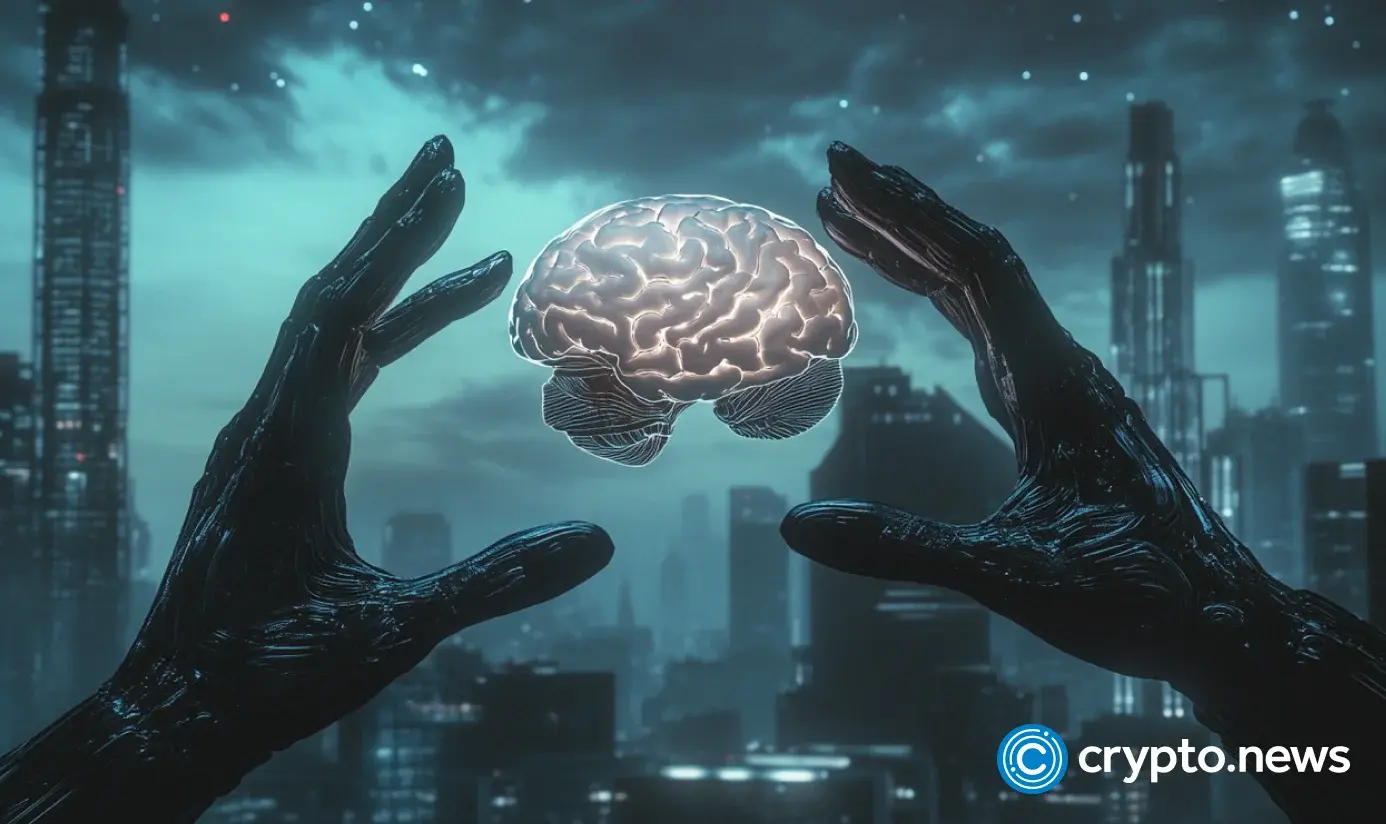Disclosure: The views and opinions expressed here belong solely to the author and do not represent the views and opinions of crypto.news’ editorial.
When OpenAI’s image generator debuted the ability to mimic Studio Ghibli’s iconic animation style, fans were stunned. But the real shock wasn’t just the eerily accurate results—it was the revelation that Ghibli’s work, like countless others, had likely been scraped to train the model without permission or compensation. The beloved studio’s legacy, built over decades, was ingested by machines and spit back out for fun.
This is not an isolated case. The world’s most powerful AI models—from ChatGPT to Midjourney—have been trained on the unconsented data of billions. While AI presents enormous benefits, from medical breakthroughs to automated productivity, it has also quietly built an empire on exploitative foundations. These systems are not neutral. They reflect the cultures, assumptions, and biases embedded in the data they consume.
It’s time to name what we all are: unpaid data creators. Whether you’re posting a photo, writing a caption, or labelling a dataset for a machine learning task, you’re feeding the future of AI. In 2025, it’s time we asked: Who benefits? And who gets left behind?
Big Tech’s dirty data secret
From the start, AI’s most powerful models were fed by scraping massive swaths of the internet. Be it books, forums, code, images, all were ingested without credit or consent. Your tweets, Reddit posts, YouTube videos, blog comments, and even creative work became training fodder for multi-billion-dollar platforms.
Legal action is starting to catch up. The New York Times is suing OpenAI for copyright infringement. Getty Images has taken Stability AI to court. Artists and coders have become more nervous and are uniting to demand fair treatment. But for years, these companies operated with impunity—turning the internet’s collective intelligence into a product from which to profit.
This extraction economy is invisible to most, but its impact is profound. AI companies sell subscriptions, raise billions, and dominate markets—while the public, whose knowledge fuels these systems, gets nothing in return.
Culture cloned, not created
A poignant fact to remember is that AI doesn’t create. It imitates—and often, it imitates poorly. When a model generates a painting, a poem, or a headline, it’s not crafting something new. It’s remixing fragments of existing human work—stripped of context, nuance, and meaning.
Worse, it has a habit of replicating our worst traits. AI systems inherit bias, cultural assumptions, and language patterns from the data they’re trained on. The result? Stereotypes amplified to the max. Marginalized voices have been instantly erased. Machines parroting the perspectives of the powerful or most consistent.
Without intentional diversity in AI training, we risk a future where intelligence is defined by the few. That’s why the makeup of who trains AI matters more than ever.
The rise of the data creator
In this new digital economy, data creators will not just be consumers or users – they are builders. From labelling images and annotating text to moderating datasets or generating structured insights, everyday people are becoming essential to the infrastructure of machine learning.
And this can’t just be a technical shift. It needs to be an economic one. Imagine decentralized data platforms where contributors are paid for their time, skill, and knowledge. Whether through stablecoins, tokens, or fiat, people could earn directly for helping train AI. This creates a new kind of labor market, one infinitely more flexible, global, and open to anyone with a smartphone and some free time.
For communities historically excluded from opportunity—rural workers, refugees, the unbanked—data work can be a lifeline. With minimal equipment and basic digital access, they can participate and upskill in one of the fastest-growing industries on Earth.
Decentralized intelligence is a global imperative
To make this work, we need to rethink how AI gets trained. The best solution? A decentralized network where communities control the future of intelligence.
Here’s how it can work: enterprises submit data needs to a distributed platform. A global network of annotators—individuals working for their own benefit—complete tasks like labelling, tagging, creating, or refining datasets. These datasets could cover lip syncing, audio datasets, creating road sign datasets, or simple annotations. Gamified systems boost engagement and quality, turning data work into competitive challenges. The community governs itself, maintaining standards and voting on major decisions, while contributors build up reputations and earn rewards.
The model is efficient, transparent, and, most importantly, inclusive. And with blockchain-backed traceability, enterprises can verify the quality and source of the data they’re paying for. This creates a closed value loop: companies get the training data they need, while people get paid for the intelligence they provide.
It’s not just about disrupting Big Tech—it’s about creating a new kind of intelligence: decentralized, democratic, and diverse. Crucially, we also keep a human in the loop.
Breaking the monopoly means rebuilding the system
Big Tech’s monopoly on AI isn’t just economic—it’s ideological. These corporations decide what data counts, who gets to train models, and whose voices matter in the future of machine intelligence.
But decentralized alternatives change the game. They distribute power. They invite participation. They give value back to those who generate it. And they challenge the extractive norms that have defined the last decade of digital growth.
The best AI won’t come from the biggest datasets but from the most diverse, ethical, and intentional ones. That future isn’t just possible. It’s already being built.
A future we choose to train
Imagine this: a young man in a remote village with nothing but a second-hand smartphone and free Wi-Fi. He joins a global network that pays him to help train AI. He opens a digital wallet for free—his first bank account. Every task he completes—tagging images, validating datasets—puts money in his wallet. He buys food. He pays school fees for his younger sister. For the first time, he has agency in the global economy.
This isn’t science fiction. It’s the future we can choose.
So here’s the call: if you’re building, design with people at the center. If you’re investing, back decentralized intelligence. If you’re using AI, ask: Who trained this model—and were they paid?
We are no longer just users of technology. We are the trainers of tomorrow’s intelligence. If we want AI to reflect us, then we must take back the mirror.

Johanna Cabildo
Johanna Rose Cabildo is the founder and CEO of Data Guardians Network (D-GN), a decentralized platform making AI accessible through community-driven data training. Previously, she led enterprise AI projects at droppGroup for the Saudi Government, Saudi Aramco, and Cisco, delivering cutting-edge innovation. With a background in technology, design, and crypto trading, Johanna is a continuous self-taught builder focused on turning curiosity into impact. Her mission is to create real on-ramps into tech, so anyone, anywhere, can contribute and own a piece of the future.




